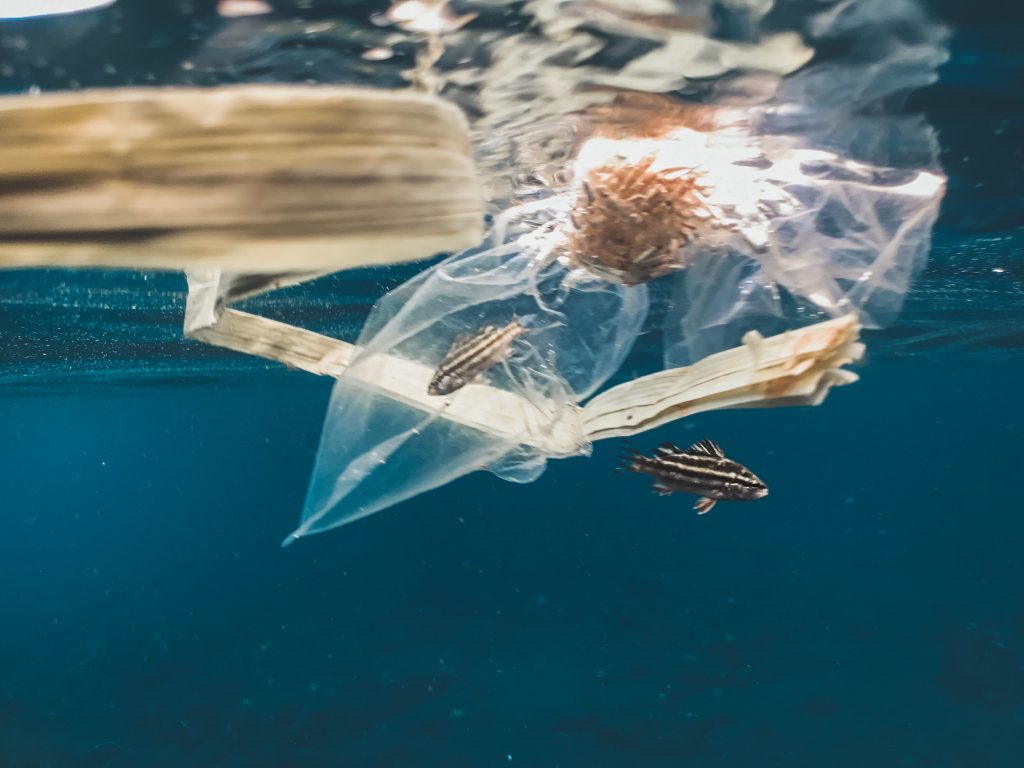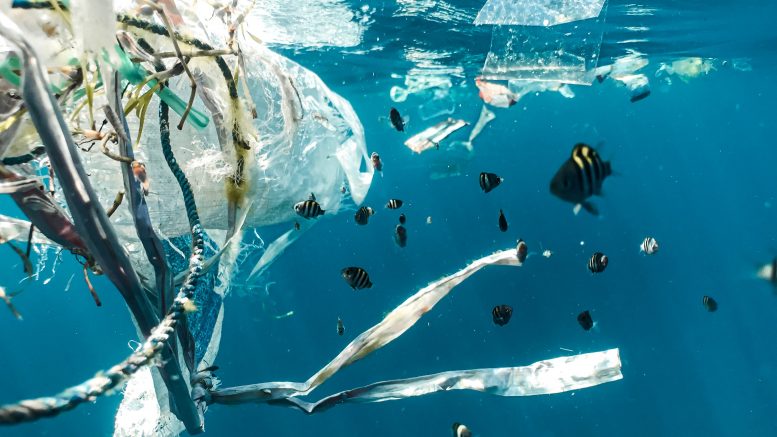By Andy Brack
The ocean is big – really, really big.* It’s so “vastly hugely mind-bogglingly” big you may not think it needs your help.
But consider the daily global degradation from pesticides, detergents, sewage, plastic (33 billion tons of it annually), oil spills and dumping. On top of that, add how warming seas are causing habitat destruction and overfishing is depleting bounties that have fed people for centuries.
Fortunately, there is a net full of specific actions you can take to help to turn it around, as highlighted by ideas shared by a dozen area water leaders and conservationists. They agree the compounded effect of these small acts of kindness can benefit our local coastal ecosystem, improve local waters and, in turn, help the ocean recover from years of harmful use.
“Protecting and resourcing our coastal waterways is essential for ensuring our right to fish, swim and enjoy the water without fear of pollution or getting sick,” said Charleston Waterkeeper Andrew Wunderley. “More than that, their health is our health — we too often overlook the connection between environmental health and human health.”
This story got its start during the reading of The Ocean: The Ultimate Handbook of Nautical Knowledge(2021) by James Island writer Chris Dixon and Jeremy Spencer of Portland, Oregon. While it offers a plethora of wisdom and short master classes on “everything from ancient skills to cutting-edge science,” it also is a broad array of things one can learn about and from the ocean. In that spirit, we offer a list of practical things you can do to help local waters and make more of a difference globally.
* Apologies to Douglas Adams, The Hitchhiker’s Guide to the Galaxy, 1979.
Enjoy the water
- Get into the water and have fun. The more that you get to the beach or enjoy rivers, the deeper you will grow to love it and want to work to protect it, several people said. “Whether you are young or old, the first step is connection,” said Hannah Giddens, science coordinator at Patriots Point. “Understanding that all water moves downstream and eventually – whether in short or very long periods of time – makes its way into our oceans is a behavior-changing notion. … If you start to ponder all of the ways the ocean affects us then it is much easier to make wise choices in our daily lives.”
James Island marine biologist Carolyn Sotka and Wunderley encouraged Lowcountry residents to paddleboard, kayak, surf, explore, learn to crab, fish, take tours and swim in tidal creeks. “Walk the beach in early morning looking for turtle tracks,” Wunderley said. “The more you experience your waterways firsthand, the more in tune and connected you’ll be with their natural and healthy rhythms.”
- Be a responsible boater. “Boating is in its own right enjoyable recreation, whether power boating or sailing or using a personal watercraft,” said Scott Gudes, a past interim administrator of the National Oceans and Atmospheric Administration with long ties to South Carolina. “Being close to the elements, those out on the water are often natural advocates for wise stewardship of the seas.” He encouraged boaters to wear life jackets, be careful when refueling, gather and dispose of trash appropriately, and respect speed limits to prevent endangerment of marine life and coastal erosion.
- Be a conservationist angler. Gudes, a former vice president of the American Sportfishing Association, also encouraged fishermen to do what they could to ensure fish remain abundant by complying with state and federal regulations, harvesting only what they consume (even if the fishing is really good), practicing catch-and-release methods, and “packing out” discarded plastic and lines to keep them out of the ecosystem. “Take a kid fishing or similar activity, like shrimp baiting,” he said. “Over 90%of today’s anglers were introduced to sportfishing by their parents, relatives or friends.”
Be sustainable
About half of the 10 people interviewed encouraged consumers to eat sustainable seafood.
- Choose local, sustainable seafood. “In Charleston, we benefit from a fishing and maritime community committed to living in balance with the seas, backed by smart and effective regulations,” said S.C. Aquarium Executive Director Kevin Mills. “Live inland from the coast? Look for seafood approved by the Marine Stewardship Council or listed by the Monterey Bay Aquarium’s Seafood Watch.” More: S.C. Aquarium Good Catch.
- Join a community-supported fishery. “You buy sustainably caught fish and you’re not putting money into factory fishing vessels operating illegally across the globe,” Dixon said. Abundant Seafood, for example, sells shares in its catch to consumers who can pick it up once or twice a month in Mount Pleasant. “Make no mistake. This is not the fish you get at the markets,” according to the company.

Protect waterways
There are several actions that go beyond not littering or picking up trash by litterers.
- Conserve water. Mills explains that just 3% of the earth’s water is fresh so if we conserve it, we won’t have to treat as much. “Don’t let your faucet run, fix leaks, take briefer showers and wash your car less,” he said. “Many parts of the world today have no reliable access to drinking water, and climate change and overpopulation threaten water security everywhere.” You can also use more cold water, use eco-friendly detergents and run water-using appliances only when full.
- Help to restore oyster beds. You can recycle oyster shells to help build new oyster beds. “People can donate oyster shells from backyard roasts or work with community-based restoration programs like the S.C. Department of Natural Resources of the S.C. Oyster Restoration and Enhancement … to take part in marsh planting or oyster reef construction,” said Natalie Olson of the Lowcountry Open Land Trust.
- Protect beaches and wild places. “Turn off lights at night that distract sea turtles, eliminate harmful fertilizers and insecticides from your lawn, join a beach or stream clean-up, plant a tree and acknowledge the beauty of the life that is all around you – teeming in the tidal pool as you wade along the beach, or nestled in the trees just outside your door,” said Mills.
Be stewards of the land, too
Sharon E. Richardson, a leading Lowcountry land conservationist, suggests caring for local waterways and the ocean starts with better stewardship of land.
“When I worry about the ocean health, I think about the almost estuarine ecosystem collapse that almost happened [in 2015] with salinity levels that were inundated post-Hurricane Joaquin,” said Richardson, who operates a consultancy called Resilient Lands Matter. “It would have collapsed the entire Charleston harbor — and no one talks about it at the local level.”
- Grow more marsh. “Marsh isn’t keeping up with sea-level rise,” she said, suggesting a project by federal and state authorities to elevate marshes near places where roads are flooding to dissipate storm surge.
- Grow more resilient grasses. “An acre of turf grass holds 10 times more [water] if it’s native plants with their deep root zones,” Richardson said. “So the big bang for the buck in all open grassy spaces is to convert them to seasonal warm grasses and pollinators for a 10-fold increase in flood storage capacity. The co-benefit is because of the deep roots, native plants sequester more carbon dioxide.”
- Donate conservation easements. Landowners can help protect salt marshes by granting conservation easements to protect non-developed areas forever, Olson said.
- Incentivize more green infrastructure. State and local governments can cut carbon and reduce climate change by incentivizing more green infrastructure, several said. The state could change guidelines for homeowners’ associations to let people steer away from traditional lawns, Richardson said. Elected officials could promote more solar, incentivize use of energy-saving green roofs and change plants in public and open spaces.
- Promote beach resilience. “South Carolina’s leaders for many years have promoted natural coastal resiliency, such as protecting sand dunes and grasses,” Gudes said. “Such efforts to promote community resilience to coastal storms are now being promoted at the national level.”
Get greener intentionally
Here is a list of specific actions you can do to get greener intentionally at home.
- Eliminate single-use plastics. There was almost universal recognition by conservationists that a huge way to help the ocean was to cut use of plastic plates, forks, cups, bottles, spoons and more. “Single-use plastics are flawed by design: They use a material made to last forever but are designed to be thrown away and are sometimes only used for a few moments before polluting the earth for years to come,” said Samantha Siegel, Southeast senior field representative for Oceana. “Today, nearly 40% of the plastic produced annually is for single-use plastics and packaging, and unsurprisingly that’s what we’re seeing on our beaches too. “
Public action to reduce their use, such as a ban on plastic bags, works, Siegel said. A 2018 ban in Sullivan’s Island cut the amount of plastic bag trash by 63%. A similar 2019 law in Mount Pleasant led to a 69% reduction, she said.
- Monitor personal care products and pharmaceuticals. Some skin products include plastic microbeads that can wash down drains and enter waterways and then fish. “Choose an alternative product without these items in them,” Giddens said. “If you want to be a bit more heavy-hitting, you can try more natural products.” Similarly, don’t flush old or unused drugs down the drain. Dispose properly through your pharmacy.
- Properly dispose of machine fluids. You shouldn’t change car oil or fluids on the street or near a storm drain. Maintain vehicles to make sure they’re not leaking, Giddens said.
- Garden consciously. Be careful with fertilizers, herbicides and pesticides in your yard so they don’t run off into area streams. Don’t use them when it rains. (Better yet, find a natural alternative.)
- Be careful with sunscreens. NOAA advises that some chemicals in sunscreens can harm corals and other marine life. Use sunscreens without harmful chemicals, Gideons said.
- Get rid of the two-stroke motor. Replace with a four-stroke motor, Dixon said. “Most two-stroke oil-burning gas motors are horrible polluters of air and water.”
- Reduce your carbon footprint. “The carbon in the atmosphere is absorbed by our oceans which causes them to become more acidic, adversely impacting marine plants and animals and in turn, us,” said Emily Cedzo of the S.C. Coastal Conservation League. “To ensure the ocean can still exist, much less thrive, we must reduce our dependence on fossil fuels.”

Learn about the water
- Teach people about the environment. “Sometimes the easiest way to do that is to help people find ways to enjoy the outdoors through nature walks and litter sweeps,” Cedzo said.
- Promote ocean literacy. Gudes, a former staffer of the late U.S. Sen. Fritz Hollings, D-S.C., said the senator’s pivotal role in legislation to protect the oceans led to state and federal programs to educate people about the marine environment. “The South Carolina Sea Grant program funded by NOAA is an excellent resource for learning about the oceans,” he said, adding that people should also visit the local aquarium to learn more.
- Educate yourself about your local waterways. “Learn their history, their culture and their ecology,” Wunderley said. “You’ll develop a deeper understanding of just how wonderful and special our rivers and creeks really are. You’ll also learn to enjoy them more.” He added people should learn the rules governing use of waterways.
Advocate & participate
- Vote. “Electing public officials who support good ocean policies can help us protect marine life and our oceans,” Siegel said. “Do your research on candidates and make an informed decision, then exercise your right and responsibility to vote.”
- Get engaged in issues. “Take action to protect the ocean,” Cedzo said. “Whether it’s opposing offshore drilling or supporting protections for the endangered right whale, there’s a lot of information out there, so get some help gathering it. You can send emails or make calls to local, state and national elected officials or speak at public meetings.” Also: Sign up for emails from conservation organizations.
- Connect with local conservation organizations. “You’ll find smart, hard-working, active people with deep connections to their communities and a pathway to becoming a clean water steward yourself,” Wunderley said.
- Become a conservation leader. “Never underestimate your power to make a difference, through volunteerism, recycling, political advocacy, sharing via social media or engagement in citizen science programs,” Mills said.
Support leaders, organizations
- Donate to conservation organizations. Among the groups to consider (other than the ones in this story): S.C. Wildlife Federation, Ducks Unlimited, Lowcountry Marine Mammal Network, Conservation Voters of South Carolina. Search for others on the internet.
- Support conservation-minded elected officials. Give to their campaigns to help them stay in office to lead on conservation issues.
Giddens, the educator, reflected that advocates can get more buy-in for conservation efforts by engaging people.
“When folks get talked down to, they tend to reject ideas,” she said. “The more we can connect people to the water, wherever they may be geographically or in their situation in life or with their beliefs, the more success will be had.”


Be the first to comment on "8 big ways you can help our waters"